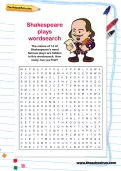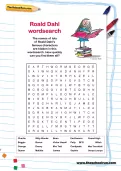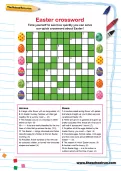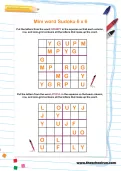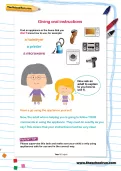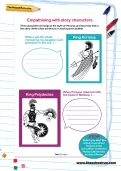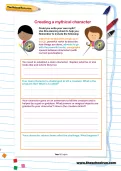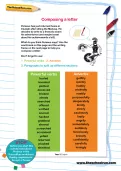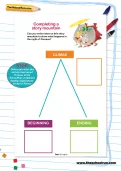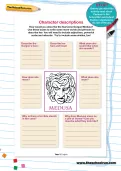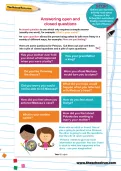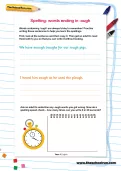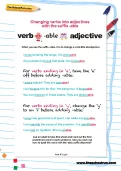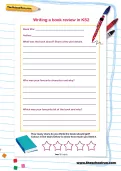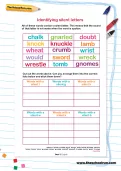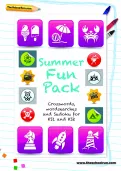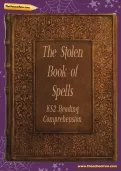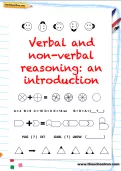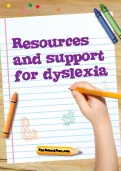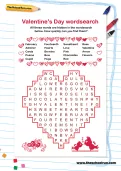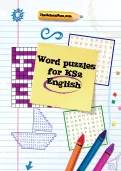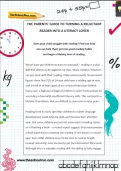Find an appliance in the home that you don’t know how to use, for example a hairdryer, printer or microwave. Have a go using the appliance yourself. Now, the adult who is helping you is going to follow YOUR commands in using the appliance. They must do exactly as you say! This means that your instructions must be very clear.
or
Register to add to your saved resources
Already a subscriber? to view this content.
Think about the two kings in the myth of Perseus and how they feel in the story. Write a few sentences in each speech bubble.
or
Register to add to your saved resources
Already a subscriber? to view this content.
Could you write your own myth? Use this planning sheet to help you. Remember to include the following: adjectives to describe people and things, powerful verbs to describe how things are done, adverbs to go with the powerful verbs, paragraphs, speech between characters (with correct punctuation).
or
Register to add to your saved resources
Already a subscriber? to view this content.
Perseus has just returned home in triumph after killing the Medusa. He decides to write to a friend to share his adventures (and maybe boast about his achievements a bit!). What do you think Perseus says? Use the word bank on this page and the writing frame on the next page to help you compose a letter.
or
Register to add to your saved resources
Already a subscriber? to view this content.
Can you write notes on this story mountain to show what happens in the myth of Perseus?
or
Register to add to your saved resources
Already a subscriber? to view this content.
How would you describe the fearsome Gorgon Medusa? Use these boxes to write some more words and phrases to describe her. You will need to include adjectives, powerful verbs and adverbs. Try to include some similes, too!
or
Register to add to your saved resources
Already a subscriber? to view this content.
A closed question is one which only requires a simple answer (usually one word), for example: What is your name? An open question allows the person being asked to talk more freely in a variety of different ways, for example: How are you feeling? Here are some questions for Perseus. Cut them out and sort them into a pile of closed questions and a pile of open questions.
or
Register to add to your saved resources
Already a subscriber? to view this content.
Words containing ‘ough’ are always tricky to remember! Practise writing these sentences to help you learn the spellings. First, look at the sentence and then copy it. Then get an adult to read them both to you so that you can write it without looking. Ask an adult to underline any -ough words you got wrong. Now do a spelling speed check – how many times can you write it in 20 seconds?
or
Register to add to your saved resources
Already a subscriber? to view this content.
When you use the suffix -able, it is to change a verb into an adjective. For verbs ending in ‘e’, take the ‘e’ off before adding -able. For verbs ending in ‘y’, change the ‘y’ to an ‘i’ before adding -able. Can you spell these words with the -able suffix attached?
or
Register to add to your saved resources
Already a subscriber? to view this content.
A KS2 book review template created by an experienced teacher to help your child create their own book reviews and improve their literacy skills.
or
Register to add to your saved resources
All of these words contain a silent letter. This means that the sound of that letter is not made when the word is spoken. Cut out the words above. Can you arrange them into the correct lists below and stick them down?
or
Register to add to your saved resources
A fun Roald Dahl wordsearch for primary school children, created by a teacher and featuring the names of Roald Dahl's famous characters!
Witches, foxes, earthworms and more – they're all wonderful characters from Roald Dahl's books. See if you can spot the names of 20 children, villains and creatures from The BFG, Danny the Champion of the world, Charlie and the Chocolate Factory and other Dahl classics in this wordsearch. How quickly can you complete it?
or
Register to add to your saved resources
Keep boredom at bay with some brilliant puzzles for KS1 and KS2! Your child will need to use all their spelling and numeracy skills to solve wordsearches, crosswords, Sudoku and Wordoku – and there are a few extra challenges to keep them busy, too!
or
Register to add to your saved resources
Already a subscriber? to view this content.
Reading comprehension doesn't have to be dull! The Stolen Book of Spells offers KS2 students an engaging story, challenging questions and a riddle to solve – they'll be so immersed in the narrative they won't even realise they're working on their literacy. Answers are provided so you can mark your child's work and help them improve their ability to comprehend, decode and interpret what they read.
or
Register to add to your saved resources
Already a subscriber? to view this content.
If your child is in the last years of primary school you might be thinking about selection tests like the Eleven Plus and how to prepare for them. To help you decide on your approach we've put together an introduction to verbal and non-verbal reasoning, with expert tips, advice and practice questions and answers for you and your child.
or
Register to add to your saved resources
Already a subscriber? to view this content.
Eggs, buns, flowers and bunnies - and chocolate, of course! Prepare for the school holidays by testing your knowledge of all things Easter-related with this quick crossword.
or
Register to add to your saved resources
What is dyslexia? Who does it affect and what are the key signs a child might be dyslexic? The Resources and support for dyslexia pack offers a complete overview, from how dyslexia is identified to at-home support strategies, expert tips to encourage a love of reading and links to further resources and advice.
or
Register to add to your saved resources
Already a subscriber? to view this content.
Love is in the air... and in this wordsearch! Have fun finding the words in this Valentine's-themed puzzle for KS1 and KS2 children.
or
Register to add to your saved resources
Are you and your child tired of the same old English revision and practice sessions? Try something completely new and give them these fun English word puzzles instead! They'll review everything from connectives to apostrophes, using what they learn in class to solve codes, crosswords and wordsearches.
or
Register to add to your saved resources
Already a subscriber? to view this content.
Why are some children reluctant to read, and what can you do to help them fall in love with books? From exploring non-fiction to making reading a feel-good pleasure, we explain how you can turn a reluctant reader into a bookworm. Happy reading!
or
Register to add to your saved resources
Already a subscriber? to view this content.
